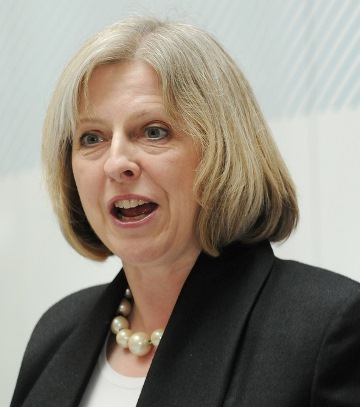Theresa May becomes new British Prime Minister
LONDON — After a startlingly swift transfer of power that made herBritain’s prime minister, Theresa May took charge of a new government on Wednesday, vowing to honor the referendum to leave the European Union and naming Boris Johnson, the former London mayor who had been widely considered politically dead, as foreign minister.
Mr. Johnson had been at the forefront of the so-called Leave campaign, but after its triumph abruptly pulled out of the contest to succeed Prime Minister David Cameron, who left office earlier Wednesday.
Speaking as she arrived at the prime minister’s office at 10 Downing Street, Ms. May, 59, who had served for six years as home secretary, sought to position herself firmly in the tradition of “one nation” Conservatism, stressing her commitment to helping the underprivileged and pledging to fight “burning injustice.” She also promised to preside over an economy that benefits everyone.
“As we leave the European Union we will forge a bold new positive role for ourselves in the world, and we will make Britain a country that works not just for a privileged few but for every one of us,” Ms. May said, as her husband, Philip, stood nearby.
Another notable appointment was that of David Davis, a former minister for Europe and a longstanding Euroskeptic, to lead a new department responsible for exiting the European Union. Liam Fox, a former defense secretary, will take charge of international trade.
Ms. May has effectively handed Mr. Johnson, Mr. Davis and Mr. Fox the responsibility for successfully carrying out the withdrawal — known as Brexit — which they repeatedly promised would yield new opportunities.
Putting crucial international portfolios firmly in the hands of Brexit supporters was perhaps an astute move for Ms. May, who had argued, tepidly, for Britain to remain in the European Union.
Not only do the appointments appear to reflect a desire to unite her party around the outcome of the June 23 vote, they may also be calculated to head off any suggestion from right-wingers that she might not follow the will of the voters.
Even so, Mr. Johnson’s elevation to such a prestigious post represents a remarkable change of fortunes in a career that has had its share of them. He played a key role in the extraordinary national dramas of the last few months, abandoning Mr. Cameron, who desperately tried to keep Britain in the European Union, and cheerfully becoming the public face of the Brexit campaign.













